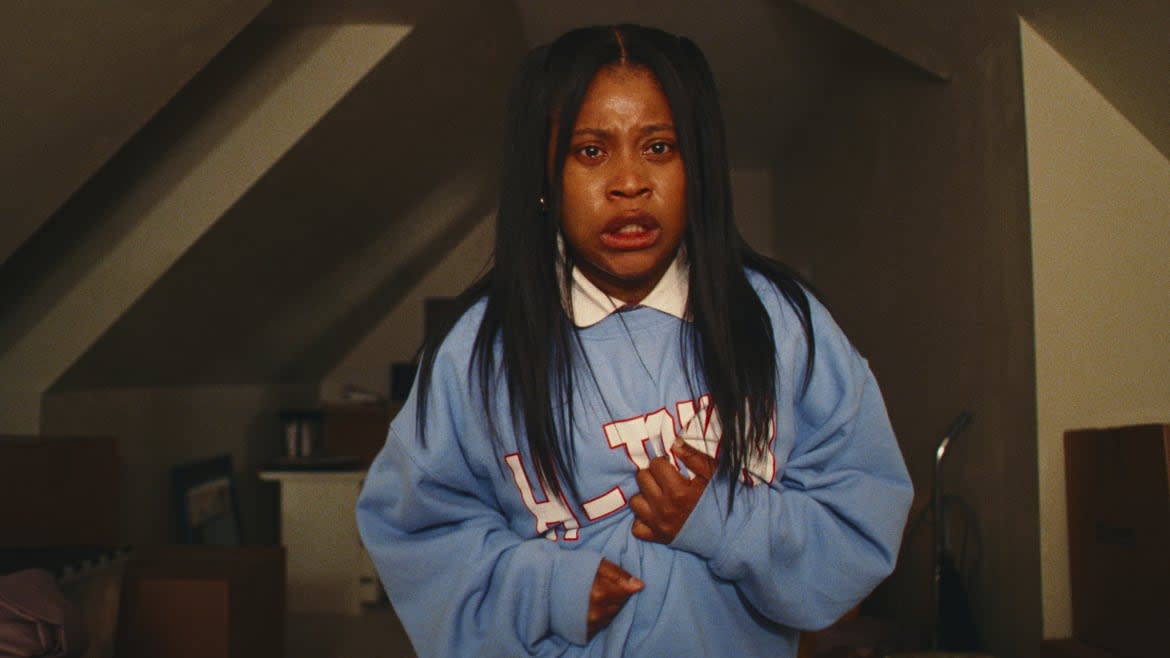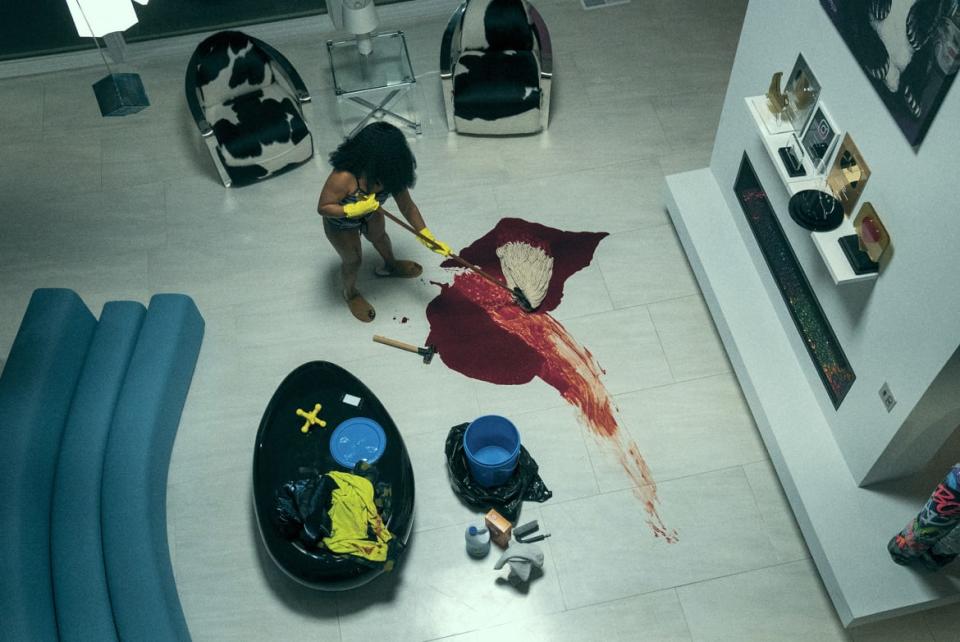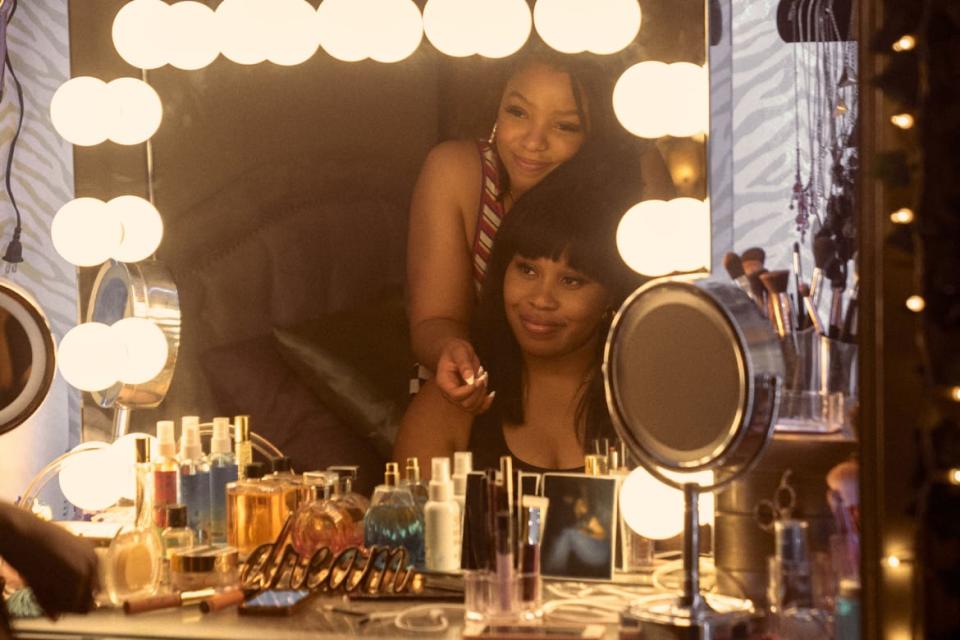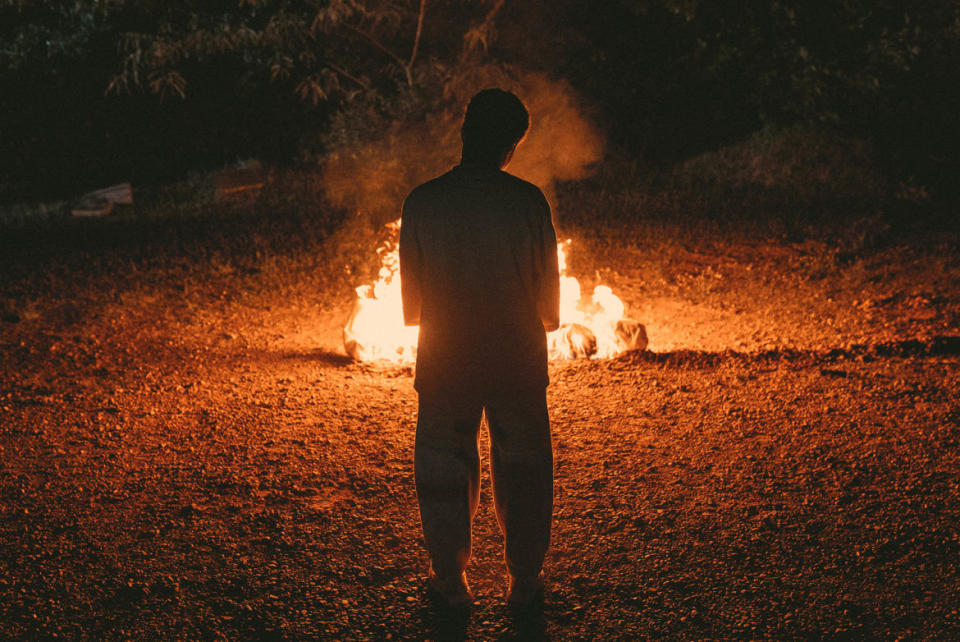‘Swarm’: How Beyoncé’s Fan Army Inspired the Wildest Show of the Year

- Oops!Something went wrong.Please try again later.
- Oops!Something went wrong.Please try again later.
No group on Al Gore’s internet is more mystifying than pop-music stans. Whether they’re using their collective powers for good (like when K-Pop stans sank a Donald Trump rally in 2020) or pure evil (like when Swifties harassed the young star of a Netflix show over a scripted joke), their presence on social media and in the larger music landscape has become inescapable, overwhelming, and a bit terrifying, to say the least. Still, there hasn’t been much representation of what these people’s lives look like away from their computer screens.
Swarm, on Prime Video this Friday, is maybe (hopefully) more of the Tarantino-esque nightmare we imagine to be a pop stan’s day-to-day life than what normally occurs in reality. Co-created by Janine Nabers and Donald Glover, the series follows a young Black woman named Dre (Dominique Fishback), whose obsession with a Beyoncé-esque superstar named Ni’Jah takes her down a shocking and disturbing path. The less details viewers know going into the series the better, as it features a number of disorienting and weirdly delightful surprises. That said, it will certainly leave fans of the psychosexual thriller genre feeling fed.
It’s not surprising that the pitch for a TV show so twisted but also grounded in truth came from Glover’s brain. Arguably since his 2010 mixtape Culdesac, Glover’s larger-than-life rap persona Childish Gambino has spurred an online cult of its own. The multihyphenate brought the idea for Swarm to Nabers, who executive produced and wrote on the last two seasons of his FX series Atlanta. And it hardly seems like much of a coincidence that the show is heavily inspired by Beyoncé’s ardent fanbase called the BeyHive, given that Nabers is from Houston.
While Nabers doesn’t have the hypervisible profile of someone like Glover (yet), many TV lovers have already fallen in love with her work over the past decade.

After establishing herself as a formidable playwright at multiple theatre companies, the Juilliard graduate began her TV career as a story editor, co-producer, and writer on Bravo’s now-canceled but beloved scripted series A Girlfriend’s Guide To Divorce. She also worked on the surprise-hit Lifetime series UnREAL and AMC’s one-season Dietland. In addition to Atlanta, the HBO miniseries Watchmen, which won several Emmys, is arguably the most note-worthy producing credit on her résumé. Swarm, however, might just topple that.
Nabers says that she wrote Swarm with the same intent as Glover when he crafted the bizarre world of Atlanta: to create a feeling. After bingeing the series, I can confirm that Nabers achieves that tenfold—violently evoking shock, horror, embarrassment, anxiety, and pity in the first 30-minute episode. It’s a clever approach for a series that could easily veer into annoyingly didactic territory. However, Swarm refrains from indicting its fangirl protagonist and stan culture as a whole.
Nabers recently spoke to The Daily Beast’s Obsessed about Swarm’s uncanny cultural references, the show’s cinematic influences and the liberation of portraying Black women as antiheroine.
Bob Odenkirk Follows Up ‘Better Call Saul’ as a Pain-in-the-Ass in a Midlife Crisis
Swarm feels like such a unique project. Are there any former plays or television shows you’ve worked on that you feel prepared you for this show?
I think as a playwright, I was always writing very subversive stories with Black women at the helm of them. And Donald was familiar with my plays. So I think that definitely gave him some sort of clue into storytelling that I do. And then just working on Atlanta and seeing the aesthetic that Donald had set from the beginning, the feeling that he wants people to feel when watching something and tonally shifting it towards this world, which is very different from Atlanta in tone and the sense that it has. But [we were] really still keeping that idea and aesthetic of like, “What’s the feeling that we want people to feel when watching this?”
When Glover pitched this show to you, did you immediately have Beyonce and her stan army in mind as an analog?
I mean, we talked about a lot of stan armies. There’s so many of them. And I think Donald, being someone who has his own kind of “swarm” and being a musician in the world who’s seen so many things—I think that really kind of helped us shape the idea—again, allowing us to feel the familiar tone or a feeling of a group of people who are obsessed and on the internet and will protect by any means necessary their star. And so we just kind of ran with that and the feeling that gives you.
How important is Beyoncé as the overarching cultural reference for the story you wanted to tell with this show?
I think that people project whoever they want onto this image of this person. When you look at iconic silhouettes of people in the world, that are Black women who represent something in music, you can kind of fill in the blank, of who that is for yourself and for this story. And I think that was really what we were trying to do, which is emulating the idea of an icon and allowing the story to just kind of unfold around that.

Can you talk to me about the show’s cinematic or television influences?
We talked exclusively about film as influences for this. And we shot everything on film. So it was just a lot of cinephiles talking about the films that we love and the weird characters that we don't quite understand but we follow anyway. A lot of them were born films, a lot of them were foreign films. We watched some anime movies. We watched documentaries. We were really inspired by so many things. I think we have a long list of things that we told the writers to go watch. And then, during the first few days of the writers room, we were just talking about all of these weird films and documentaries and weird songs that we were listening to, so that was a lot of food for thought.
Were you already tapped into the underbelly of social media known as Stan Twitter or StanTok?
I did a lot of research. But there were eight writers in the room, including Donald and myself. So we had so many knowledgeable people. And what’s funny about having worked on Atlanta for two years is, half of the time in that room, we were watching YouTube and texting each other memes and on Twitter and Instagram. And this show was very similar. We were always online, always in our group chat, just talking about every single thing that was trending that day. You have your ears and your eyes open to everything. And everything is kind of food for thought, especially when it’s on social, especially when it deals with anything that has any musical or cultural component to it.

So much of the show relies on Dominique Fishback’s fantastic performance. How much of the character of Dre what you envisioned when writing the scripts versus what Fishback brought to it?
She’s incredible. And I think that she really gave so much of herself for this role. And she really just brought Dre to life in a way that surpassed all of our expectations. Because you write a script—and like all of the scripts that I wrote, you see this character living in a way where she speaks very little at times. And so how do you allow a character like that to live through the face of a woman who can look really sweet but menacing, and terrifying all at once? And I think that Dominique just really nailed it. And I think she really just owned it. And I’m excited for everyone to see her and all of these episodes.
I feel like, during another time period, seeing a Black woman play this violent antiheroine would’ve ruffled some feathers. But now, thankfully, there’s enough images of Black women that these transgressive characters can exist without worrying about what it means on a community level.
It’s really important when people talk about diversity and storytelling that people see that “Black” is not just considered diversity. There are diverse stories within Black storytelling. And that, to me, I think is really great. I think that is what I want people to take away. I want people to understand that you can tell your own version of a Quentin Tarantino story through the lens of a Black female. It’s not always just reserved for white men to be antiheroes. And we can do that, too. And we can do it in a way that maybe even surpasses that and gives it a little bit more meaning because Black women are capable of so many things. And I think having a Black woman in this role also opens the box for other actresses to play roles that they never dreamed of playing, which is what we’re really excited by.
Keep obsessing! Sign up for the Daily Beast’s Obsessed newsletter and follow us on Facebook, Twitter, Instagram and TikTok.
Get the Daily Beast's biggest scoops and scandals delivered right to your inbox. Sign up now.
Stay informed and gain unlimited access to the Daily Beast's unmatched reporting. Subscribe now.

